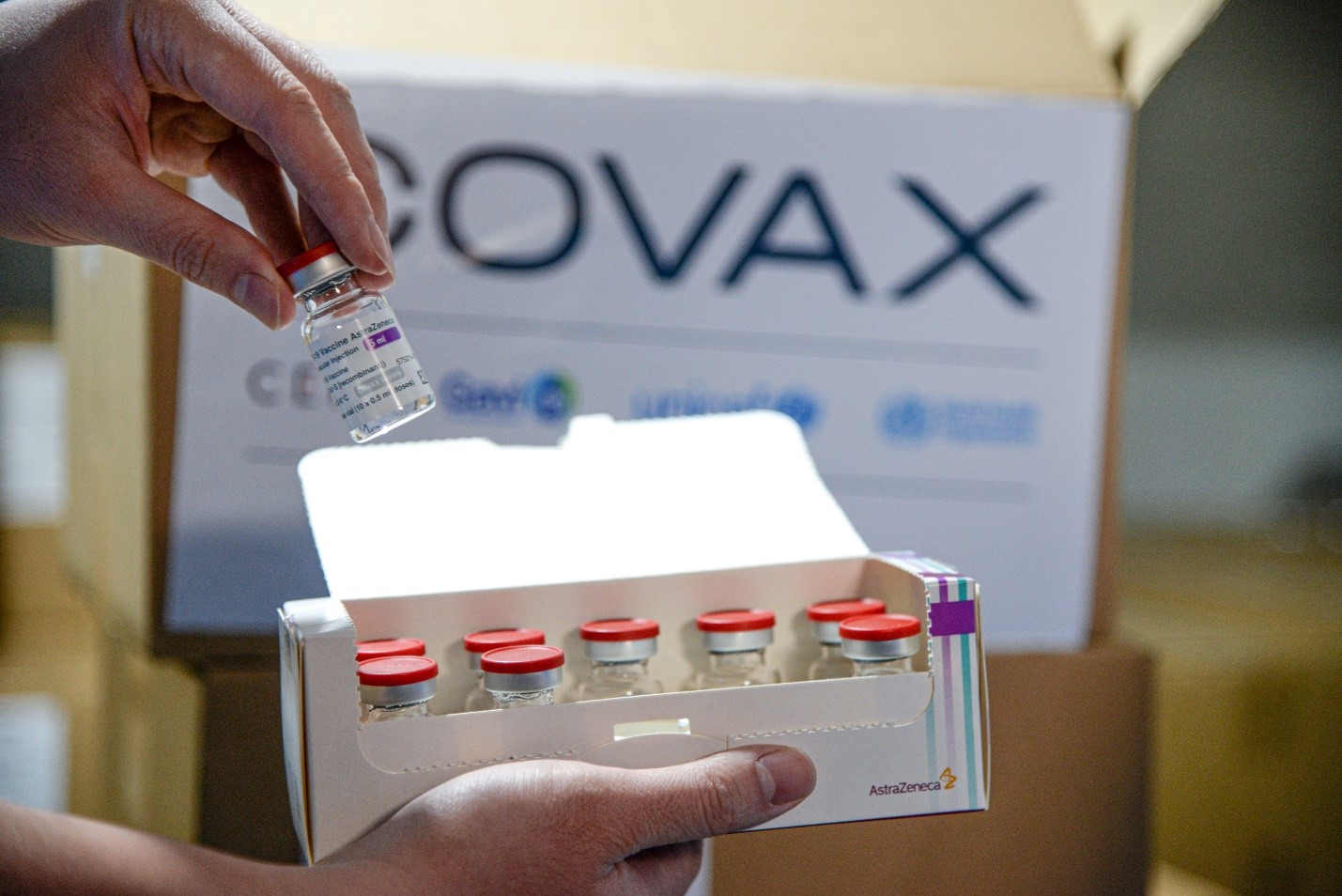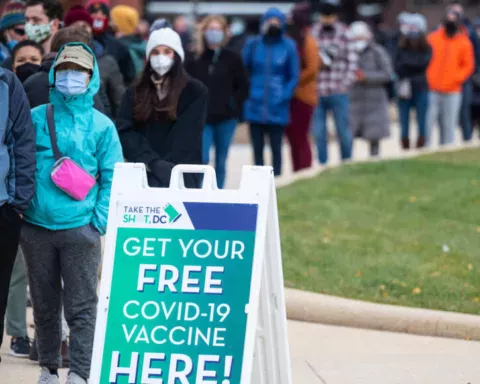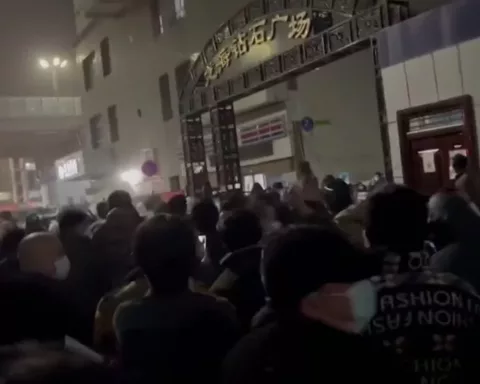“WHO is working to support low- and middle-income countries to strengthen their capacity to roll out vaccines effectively and efficiently when they arrive. But we still have a lot of work to do. We need to dramatically scale up the number of vaccines being produced for lower-income countries,” he added.
WHO, thanks to its partners and donors, is working around the world to boost vaccine equity and ensure that everyone, everywhere has a chance to be protected.
Delivering vaccines to countries in need

COVAX vaccines arrive in Manila. Published in August 2021 by WHO Philippines.
Philippines: Three million vaccines from the United States of America delivered by COVAX Facility
Three million doses of COVID-19 vaccines were recently donated by the Government of the United States to the Philippines, through the COVAX Facility. This comes at a crucial moment as Manila braces for a hard lockdown to stem the spread of the Delta variant of COVID-19.
The most recent arrival brings the total of COVAX donations to the Philippines to 13.2 million doses of COVID-19 vaccines. Of these, 6 million doses were donated by the United States as part of its global vaccine-sharing strategy, which aims to provide at least 80 million vaccine doses to countries most affected by the COVID-19 pandemic.
The COVAX Facility is co-led by WHO, the Coalition for Epidemic Preparedness and Innovations (CEPI), GAVI, the Vaccine Alliance and UNICEF.
Sri Lanka: Large consignment of vaccines received from Japan via the COVAX Facility
Over 728,000 doses of COVID-19 vaccines were recently delivered to Sri Lanka out of a total contribution of over 1.4 million doses provided by the Government of Japan through COVAX. This is the third COVAX allocation to Sri Lanka, all being entirely donor-funded, at no cost to the country.
The Government of Japan’s donation is an important response to the call for dose-sharing through COVAX as an immediate measure to address shortages in vaccine supply.
Viet Nam: COVAX delivers additional 1.18 million COVID-19 vaccine doses

Viet Nam recently received approximately 1.2 million doses of COVID-19 vaccines through the COVAX Facility, bringing the total donations to the country to over 8.5 million doses. The United States Government has so far shared over 5 million Moderna vaccine doses with Viet Nam through COVAX.
Lao PDR: Japan donates COVID-19 vaccines
Lao PDR recently received a donation of over 600,000 doses of COVID-19 vaccines from the Government of Japan through the COVAX Facility to strengthen the country’s vaccination rollout.
Liberia: Event boosts COVID-19 vaccine rollout

Liberia reached another significant milestone in the fight against COVID-19 as 302,400 doses were added to its vaccination campaign through a donation by the United States Government via the COVAX Facility.
An event which marked the acceleration of the campaign was attended by dignitaries from the Liberian Government, members of the diplomatic community, WHO, United States Centers for Disease Control and Prevention (US-CDC), United States Agency for International Development (USAID) and other international and national partners, as well as civil society organizations and members of the media.
Countries in the WHO South-East Asia Region scale up vaccination
More than half a billion doses of COVID-19 vaccines have been administered in the WHO South-East Asia Region, with more vaccine doses becoming available and countries scaling up efforts to rapidly expand coverage amid a current surge in cases. As of 6 August, 618.5 million doses had been administered. As many as 146 million people have received two vaccine doses and are fully vaccinated. India, Indonesia, Sri Lanka, Bangladesh, Bhutan, Maldives, Nepal, Thailand and Timor-Leste have all made commendable efforts.
Advocating for indigenous communities

WHO in the Americas calls for more assistance for hard-hit indigenous communities during the COVID-19 crisis and beyond
Pan American Health Organization (WHO/PAHO) Regional Director Carissa F Etienne reported that 617,000 indigenous people have been infected with COVID-19 in the Americas and urged countries to prioritize hard-hit communities.
“It is likely that many more have been infected, but we may not know it because they have struggled to get the COVID-19 care they deserve,” she said during a recent weekly media briefing. She added that “nearly 15,000 [indigenous people] have died from COVID-19 complications since the start of the pandemic.” The statistics are based on data from several countries. Many indigenous peoples in the Americas live in remote and isolated areas where a clinic or a doctor may be many kilometres or days away. Even those who live in urban centres still face invisible barriers–like language, stigma, and poverty–that can keep health care out of reach.
On the occasion of International Day of the World’s Indigenous Peoples on 9 August, Dr Etienne noted that the pandemic has exacerbated inequalities in the Americas, adding that most indigenous peoples lack the financial and social safety nets to ensure they can continue to provide for their families and communities, even when they are sick.
Colombia: Contributing to indigenous health and well-being in the Amazon

In order to promote community health strategies and empower indigenous health leaders as health risk managers in 4 indigenous communities in the Amazonas region, WHO conducted workshops on first response, psychological first aid, community-based public health surveillance and participatory communication.
The workshops included the participation of health leaders appointed by traditional indigenous authorities. The training sessions established first response teams and served as a venue to provide necessary equipment. The initiative aimed to bridge traditional and western medicine. The project was supported by the United Nations Central Emergency Response Fund (CERF).
Yemen: KSrelief partners with WHO to save lives from COVID-19

Throughout the pandemic, WHO has been working in partnership with the King Salman Centre for Humanitarian Aid and Relief in the fight against COVID-19 in Yemen. Through this partnership, and in coordination with local authorities, WHO has been enabling rapid detection and response to COVID-19 cases through the Emergency Operations Centres, which represent a platform for an integrated, multisectoral coordination system at central and governorate levels across the country.
Survivor Ali Mothana recently battled COVID-19 but was able to receive the treatment he needed at the WHO-supported intensive care unit in Al Sadakah hospital in Aden. He is now recovering and is grateful for the healthcare he received.
****
Partners and donors recognized in this feature are the governments of Japan, United States of America, United Nations Central Emergency Response Fund (CERF), the Coalition for Epidemic Preparedness and Innovations (CEPI), GAVI, the Vaccine Alliance, and UNICEF.
WHO thanks all governments, organizations and individuals contributing to the COVID-19 response around the world since the beginning of the outbreak, and in particular, those who have provided fully flexible contributions to ensure a comprehensive fight against the disease.






